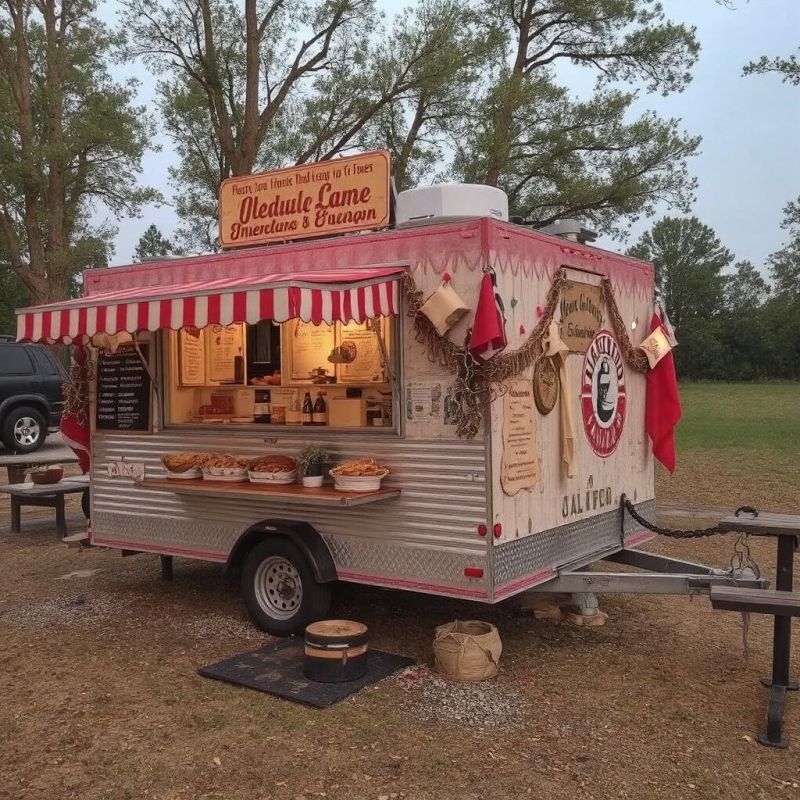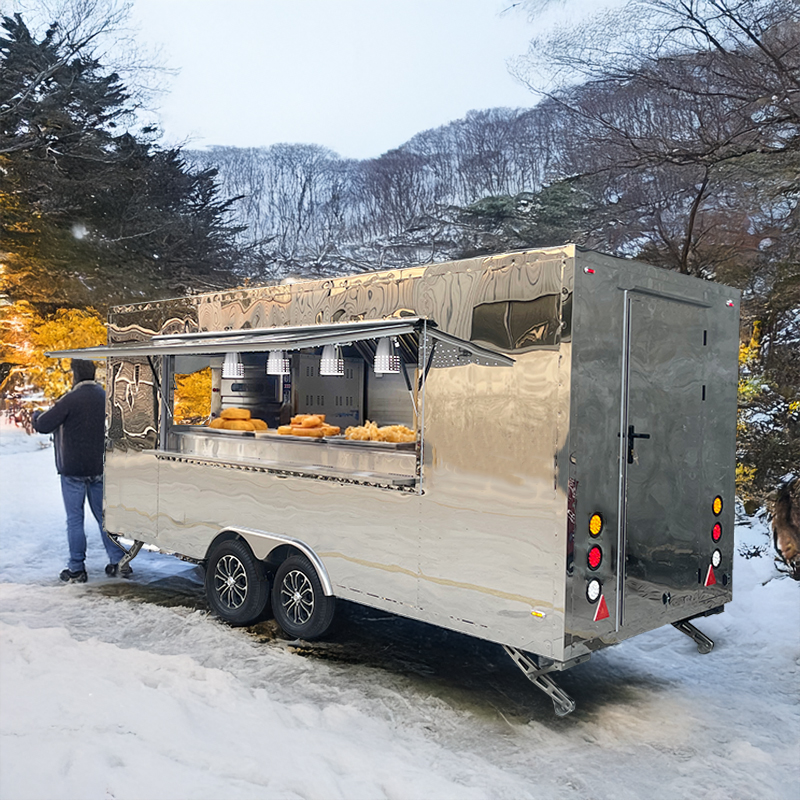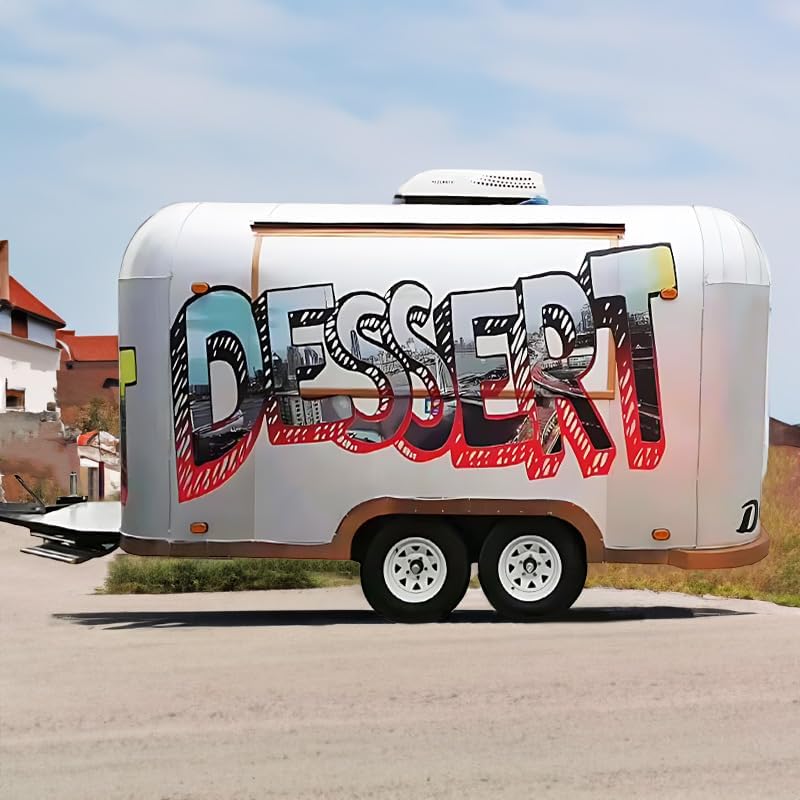When considering starting a pizza shop, entrepreneurs often face the choice of whether to open a traditional pizza shop or opt for a pizza trailer. Both options have their own advantages and challenges, so it’s important to weigh the pros and cons based on your business goals, budget, and lifestyle preferences. Here’s a breakdown to help you decide which option is best for you:
1. Initial Investment & Operating Costs
Pizza Trailer:
- Lower Initial Investment: Generally speaking, pizza trailers have much lower startup costs than traditional pizza shops. Depending on size, equipment, and customization, a pizza trailer can cost anywhere from $30,000 to $100,000, with used trailers costing less.
- Lower Operating Costs: Rent, utilities, and maintenance costs are minimal compared to brick-and-mortar stores. You’ll pay for a trailer parking spot or mobile location (usually by the day or week), which can be a fraction of commercial rent in many locations.
- Cost Flexibility: Ability to move to high-traffic locations or to different areas, reducing reliance on a fixed location. This means you can focus on events, festivals, or high-traffic areas to maximize sales.
Traditional Pizza Shops:
- Higher Initial Investment: Opening a pizza shop can cost a lot more, ranging from $100,000 to $500,000 or more, depending on the location, size, and quality of equipment. This includes rent, utilities, renovation costs, and employee salaries.
- Ongoing Expenses: Rent can be a large monthly expense, especially in high-traffic areas. There are also higher utility costs, insurance, and employee salaries to consider.
2. Location Flexibility
Pizza Trailers:
- Highly Flexible: One of the main benefits of a pizza trailer is that it can be moved around. You can open a shop in high-traffic areas, such as festivals, fairs, concerts, or even busy street corners. You can test different markets and adjust the location based on demand.
- Reduced Risk of Decline: If one location is underperforming, you can simply relocate. This flexibility allows you to continually optimize revenue streams.
Traditional Pizza Shops:
- Fixed Location: A pizza shop is closely tied to a physical location, and sales depend on the customer base in that area. If you find that location is less profitable, relocating may be difficult or costly.
- Location is critical: You need to make sure your store is in a high-traffic area or has a strong local customer base to be successful. Otherwise, your overhead costs may eat into profits.
3. Brand awareness and marketing
Pizza trailers:
- High visibility at events: Pizza trailers allow you to take advantage of events, markets, or busy streets to attract customers through mobility and unique settings. The visual appeal of a customized or branded trailer can attract attention.
- Social media and word of mouth: You can build brand awareness by showcasing your travels, food preparations, and participation in local events through social media, creating a buzz and increasing your presence in multiple locations.
Traditional pizza shops:
- Brand stability: Once you have established a pizza shop, you have a fixed location to cultivate customer loyalty. Brick-and-mortar stores are generally more likely to generate repeat business because customers know where to find you.
- Local advertising: You can invest in local advertising, loyalty programs, and other methods to increase foot traffic and brand awareness. However, your store locations will be somewhat limited.
4. Seasonality and flexibility of hours
Pizza trailers:
- Seasonal opportunities: Pizza trailers can better adapt to seasonal changes. You can focus on outdoor activities in the summer or move to indoor activities in the winter. If the trailer is mobile, it is easier to follow the seasons or relocate to avoid the off-season.
- Hours: You can be flexible with your hours and open during peak times, holidays, or when and where demand is highest. You have the freedom to adjust hours based on traffic conditions.
Traditional pizza shops:
- Fixed hours: Pizza shops are usually open at fixed times, usually with lunch and dinner hours. This can limit revenue opportunities, especially if the location is in a competitive area.
- Seasonal issues: Some pizza shops may experience slow business during the off-season, making it more difficult to maintain a steady income throughout the year.
5. Staffing and management
Pizza trailers:
- Fewer employees: Pizza trailers generally require fewer employees to operate, which means lower labor costs. You may only need a few people – such as a cook and one or two helpers.
- Less complexity: There is less overhead in management and operations. This simplicity is very beneficial for new entrepreneurs or small business owners.
Traditional Pizza Shops:
- More Staff Required: If you open a brick-and-mortar location, you will need to hire more staff to take turns cooking, serving, cleaning, and managing the store. This can increase staffing and management complexity.
- Greater Operational Complexity: Operating a traditional restaurant involves managing a larger inventory, handling multiple business operations (e.g., waiters, cooks, cleaners), and generally requires a wider range of management skills.
6. Customer Experience
Pizza Trailers:
- Street Food Atmosphere: Pizza trailers often offer a fun and casual experience for customers who want a quick bite on the go. This experience can be more spontaneous and engaging, especially at events.
- Limited Space: Due to the small size of the trailers, customers may have a limited dining experience. Trailers often have no seating, so customers may need to eat standing up or on the move.
Traditional Pizza Shops:
- Sit-Down Dining Experience: Traditional pizza shops offer a more consistent, relaxed dining experience, offering both dine-in and delivery options. This attracts families, groups, and those seeking a more leisurely dining experience.
- Steady Customer Base: Traditional pizza shops benefit from repeat customers who keep coming back for the atmosphere, consistency, and quality.
7. Regulatory and Licensing Challenges
Pizza Trailers:
- Complying with Permits and Regulations: Operating a pizza trailer may require compliance with local health codes, food truck permits, and parking permits. Regulations may vary by city or region, and complying with them can be time-consuming.
- Mobility Issues: Depending on where you operate, you may need to pay for permits or licenses for specific locations or events.
Traditional Pizza Shops:
- Fixed Licenses and Permits: Traditional shops require specific licenses (e.g., a liquor license if alcohol is served), which are often location-dependent. However, you may not have as many mobility-based regulations to worry about.
- Longer Approval Process: Getting approval for a traditional restaurant site may take longer and involve more paperwork, including zoning, health, and safety inspections.



